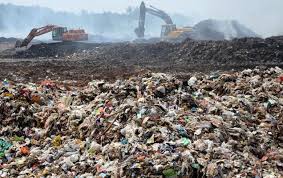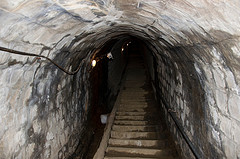 The phenomenon of organised crime in Italy is intrinsically connected with social development and is a powerful brake on institutional performance. The power of the organised crime lies in its involvement into seemingly legal activities and in the control exercised over entire economic sectors through systematic extortion and violence.
The phenomenon of organised crime in Italy is intrinsically connected with social development and is a powerful brake on institutional performance. The power of the organised crime lies in its involvement into seemingly legal activities and in the control exercised over entire economic sectors through systematic extortion and violence.
Since the early Nineties, southern regions in Italy have experienced chronic issues of illegal disposal of urban waste, mainly due to easy access to uncultivated land, presence of caves and sovereignty of mafiosi – to use a general definition that encompasses mafia, camorra, ‘ndrangheta and other networks. When combined with inherent weakness of local administrations that turn a blind eye to illicit trafficking of waste, this poses a serious threat to local welfare, health and agriculture.
In Italy, waste management is a public service funded by revenue from waste taxes. The operational part – collection, treatment and landfilling – is performed by private companies or subsidiaries, which compete in public tenders. The regional authority, via a regional commission, sets an average value for the price of landfilled waste, while local waste operators set site-specific gate fees. It follows that the waste operator gains higher profit from the combination of higher prices and larger quantities of treated waste. Net economic benefit from waste management depends on private costs of landfill establishment, operation, and health and environmental standards; hence it is not unreasonable to say that private costs are lower if the waste operator deviates to illegal disposal – an option offered by mafia.
This generates a loss of economic efficiency; the rent from waste management activities entirely accrues to criminal networks, which often infiltrate in the tender system and bid comparatively lower prices. Also, there is strong deterrence on entrants, which decide not to participate in the bidding process because they believe criminal infiltration is inevitable. Due to increasing demand for cheaper environmental services, to the delay in implementing waste legislation, and to low ethical business values, environmental crimes become endemic – and not only in southern regions. These include illegal dumping and burning of garbage, which earned the area between Naples and Caserta (Campania) the infamous name of Terra dei fuochi (Land of fires).
My assumption is that the mafia plays a decisive role in determining the destination of collected municipal waste in order to gain profit from illegal disposal, and that, by doing so, it behaves as a (bad) alternative provider of a public service. In an extended version of this work, I use econometric modelling – a time-series cross-sectional approach – to provide evidence of this assumption. Indeed, statistical results from a panel of 1320 observations across 101 provinces show that the presence of mafia networks results in up to 93 percent of municipal waste being diverted into illegal streams.
This outcome is extremely relevant in policy terms because it accounts for spatial dependence and macroregional clustering. Given the historical establishment of criminal groups in the South – e.g. in Campania, Sicilia, Calabria, Puglia – one would expect cluster-specific results. But there is conclusive evidence that the presence of mafia is a determinant of illegal waste management independently of geographical location.
This finally clears a misconception that southern regions still face up to the present day. While it is true that the South has historically witnessed a stronger presence of the organised crime, which constrained social welfare and economic performance, it is increasingly evident that the mafia has expanded beyond historical boundaries, and it did so with devastating effects.
Efficiency in the waste sector is yet to be accomplished in a homogenous way in Italy. Landfill remaining the main destination for municipal waste disposal (46 percent of total waste is landfilled on average according to environmental NGOs) despite considerable policy effort by EU authorities to increase waste separation and deter waste production at the source. National financial downturns and institutional delays in complying with European policies contribute to portrait a discouraging scenario.
In addition to these structural elements, the presence of mafia represents a powerful constraint on policy development and efficiency. The effectiveness of police enforcement is limited by the ability of the mafia to conceal itself and exploit seemingly legal documents and accounts. A higher level of enforcement against environmental crimes could only be effective if coupled with more transparency in the political administration.






No Comment